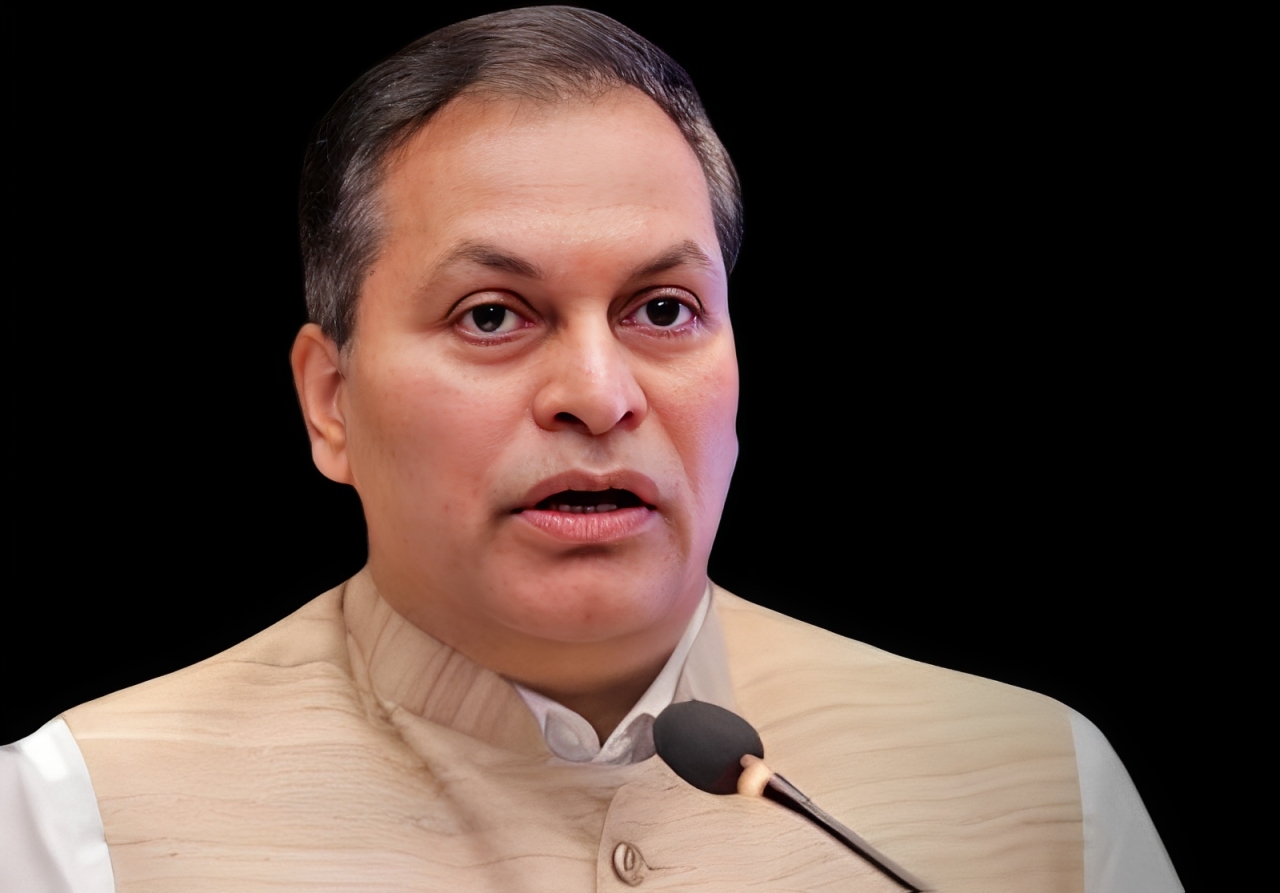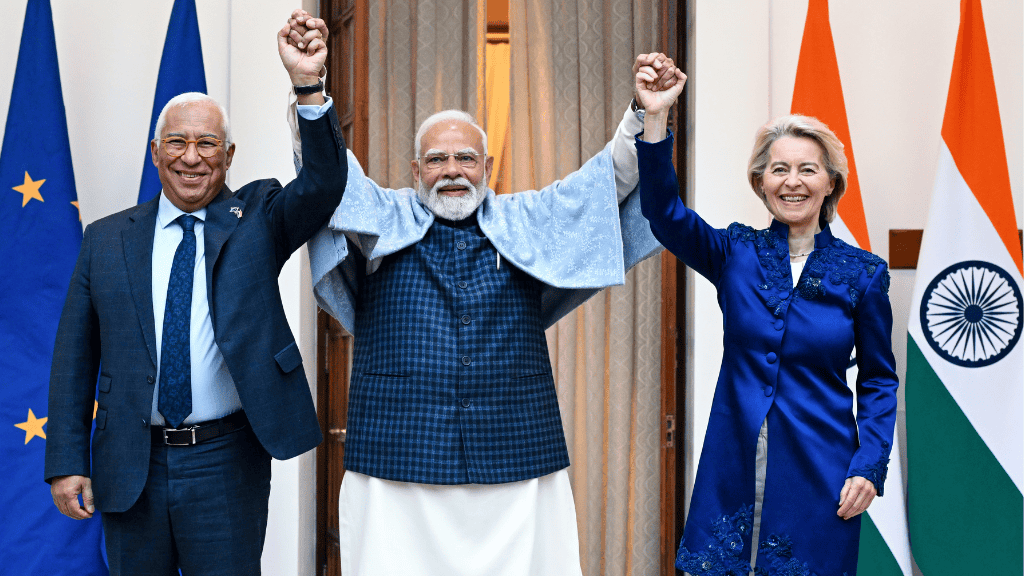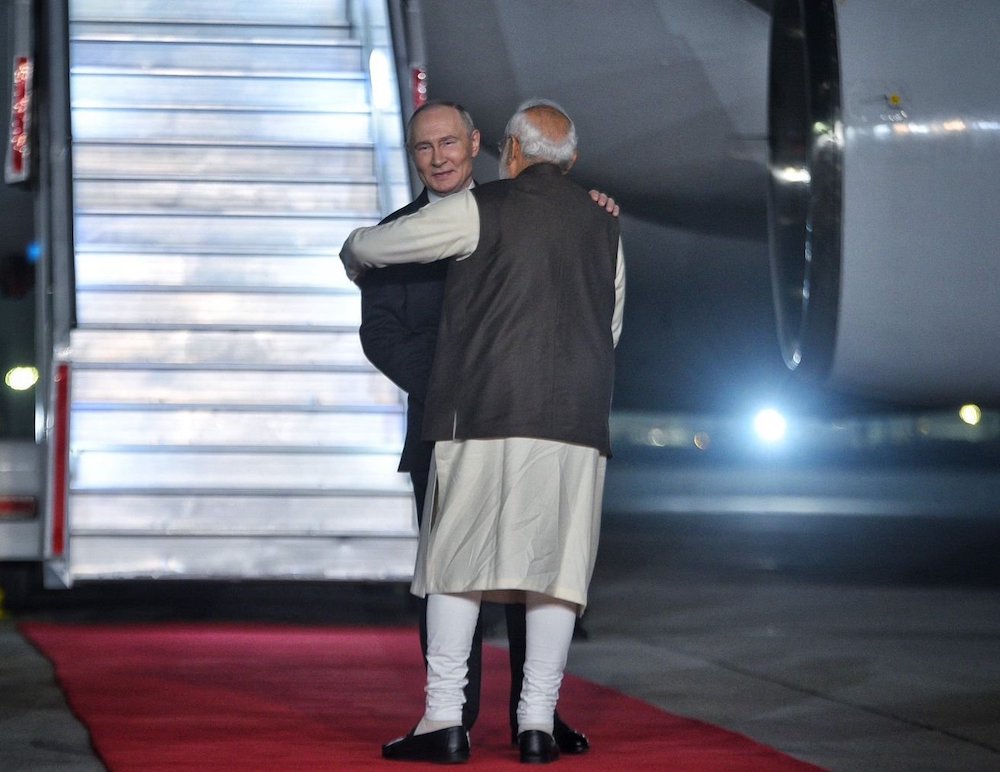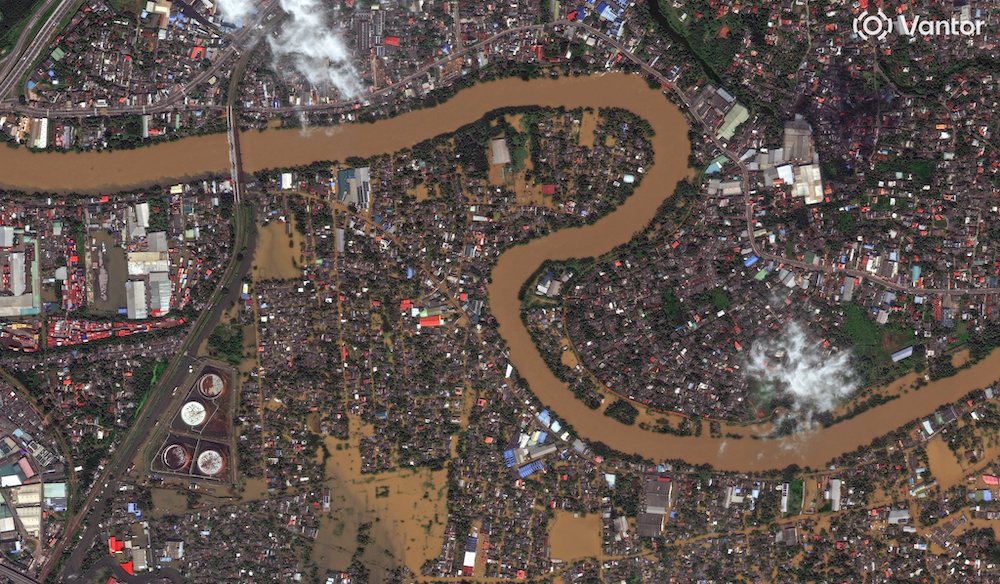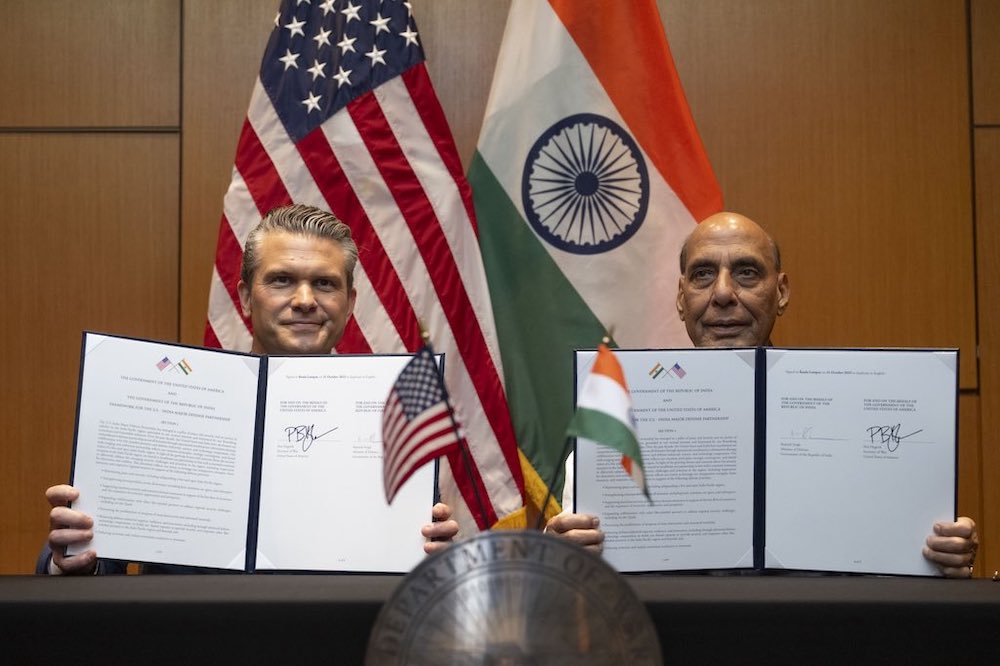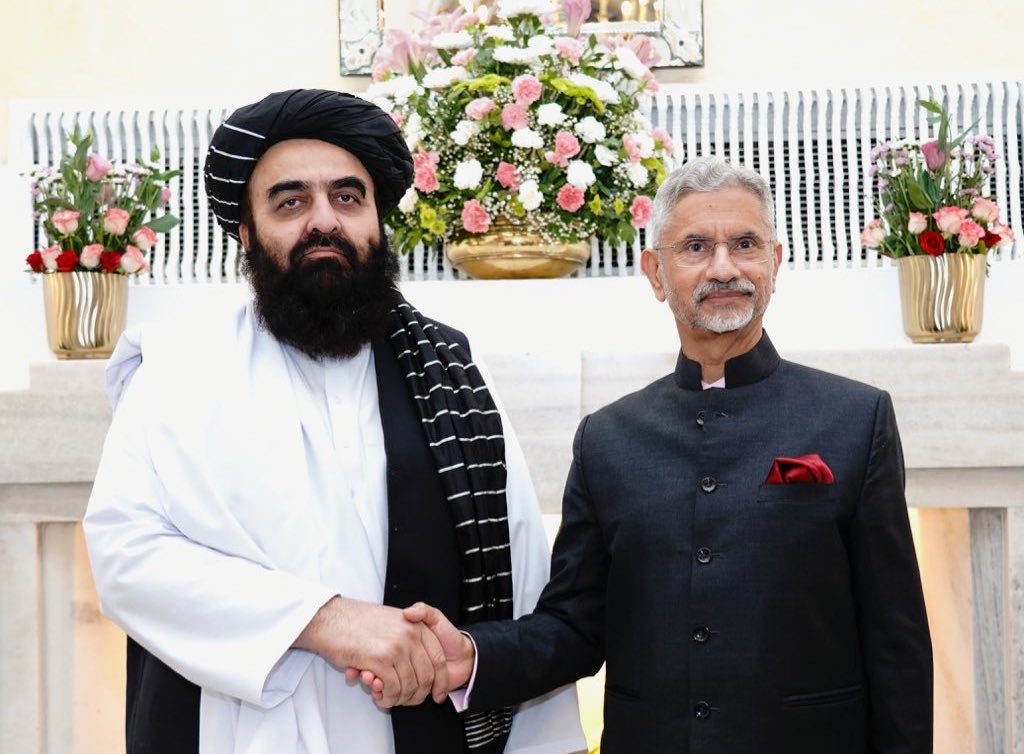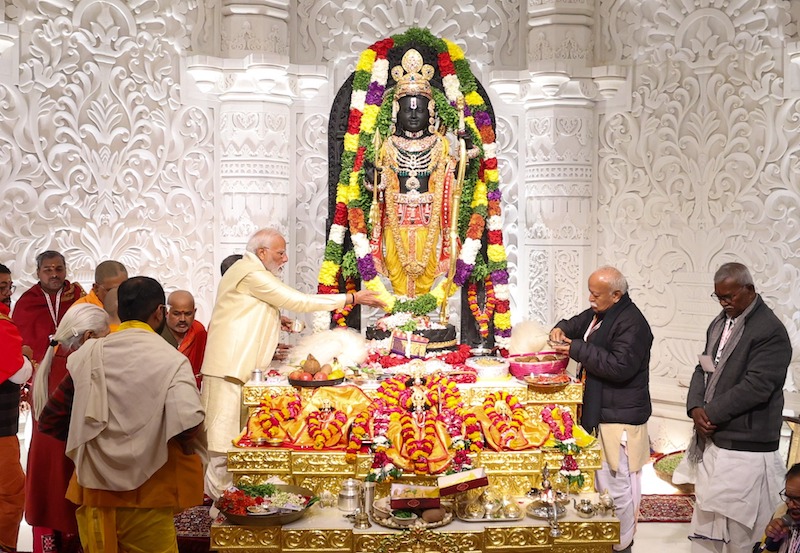 Narendra Modi (centre-left) offering flowers at the feet of Ram’s idol at the Ayodhya Ram temple during its consecration ceremony. (Photo: X/@narendramodi)
Narendra Modi (centre-left) offering flowers at the feet of Ram’s idol at the Ayodhya Ram temple during its consecration ceremony. (Photo: X/@narendramodi)
New Delhi: Pakistan condemned India on the consecration of the Ram temple in Ayodhya, on Monday. The country’s foreign ministry issued a statement saying the ceremony was “indicative of India’s growing majoritarianism” and a “violation of the rights” of the Muslim minority in the country.
In the statement, the Pakistani foreign ministry said: “The developments of the last 31 years, leading to today’s (Monday’s) consecration ceremony, are indicative of growing majoritarianism in India. These constitute an important facet of the ongoing efforts for social, economic, and political marginalization of the Indian Muslims.”
The statement also criticized the Supreme Court’s verdict that cleared the way for the construction of the temple on the site where the Babri Masjid (mosque) once stood. It said that the court had “failed to uphold the rule of law and the principles of justice” by acquitting those who had demolished the mosque in 1992 and by allowing the temple to be built on the disputed land.
It said: “Deplorably, India’s superior judiciary not only acquitted the criminals responsible for this despicable act but also allowed the construction of a temple on the site of the demolished mosque.”
Pakistan also claimed that the temple consecration was part of a larger agenda of the Hindu nationalist government of India to “alter the demographic structure and historical character” of Jammu & Kashmir and other Muslim-majority areas in India. It alleged that India had “designs” on other mosques, such as the Gyanvapi mosque in Varanasi and the Shahi Idgah mosque in Mathura, which it said were “under threat”.
It said: “Notably, there is a growing list of mosques, including the Gyanvapi Mosque in Varanasi and Shahi Eidgah mosque in Mathura, facing similar threat of desecration and destruction.”
Pakistan also raised the issue of some Indian political leaders’ statements on the destruction of the Babri mosque. It said: “The rising tide of ‘Hindutva’ ideology in India poses a serious threat to religious harmony and regional peace. The chief ministers of two major Indian states, Uttar Pradesh and Madhya Pradesh, are on record as citing the Babri mosque’s demolition or inauguration of the Ram temple [in Ayodhya] as the first step towards reclaiming parts of Pakistan.”
Pakistan also urged the international community to take notice of the “grave situation” and to hold India accountable for its “illegal and unilateral actions” that threatened regional peace and security. It also reiterated its “unflinching solidarity” with the Kashmiri people and their “legitimate struggle” for self-determination.
The Pakistani foreign ministry said: “The international community should take cognizance of the growing Islamophobia, hate speech, and hate crimes in India. The United Nations and other relevant international organizations should play their part in saving the Islamic heritage sites in India from extremist groups and ensuring the protection of the religious and cultural rights of the minorities in India.”
Full Pakistani statement here:
🔊: PR NO. 2️⃣4️⃣/2️⃣0️⃣2️⃣4️⃣
— Spokesperson 🇵🇰 MoFA (@ForeignOfficePk) January 22, 2024
Pakistan Condemns Consecration of the ‘Ram Temple’ on the Site of Demolished Babri Mosque
🔗⬇️https://t.co/s3zJmZMhzN pic.twitter.com/X5rYshPxDu
India is yet to react to Pakistan’s statement officially.
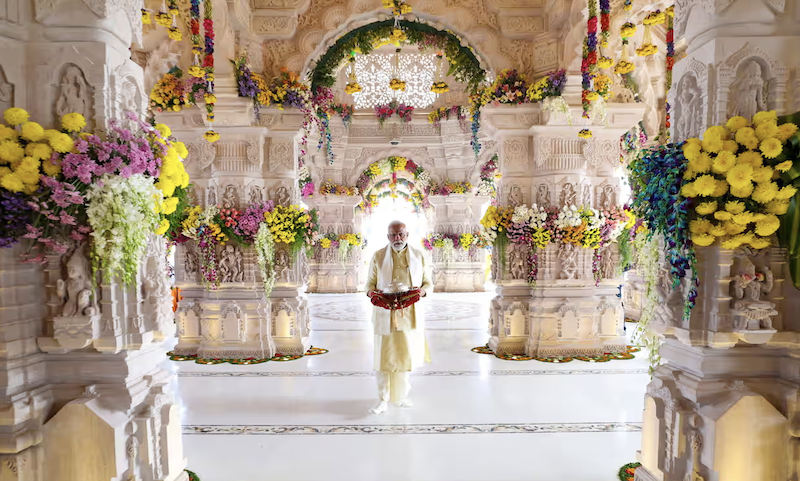 Narendra Modi at the Ayodhya Ram temple during its consecration ceremony. (Government of India handout.)
Narendra Modi at the Ayodhya Ram temple during its consecration ceremony. (Government of India handout.)
The temple consecration in Ayodhya was attended by the prime minister, Narendra Modi, and thousands of dignitaries and devotees. It marked the culmination of a decades-long legal and political battle over the ownership of the land where Hindus believe Lord Ram was born.
According to several sources, the temple is expected to be completed by 2025.


